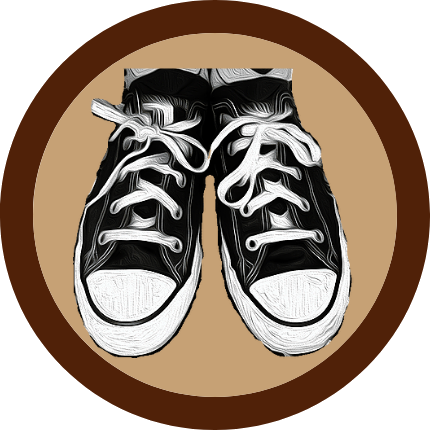How Will You Be Different?
When You’ve Tried Just About Everything
This summer, I participated in a workshop where we ran group consultancies—structured protocols where colleagues help each other think through challenges. One participant laid out their situation: difficult team dynamics, entrenched resistance, competing priorities. The group responded generously, offering research-backed frameworks, proven approaches, tried-and-true go-to strategies.
To each suggestion, the person shook their head and responded with a common refrain: "Yes, I tried that and it didn’t work.” This person graciously accepted others’ wisdom but still seemed to be seeking a magical method that would change everything.
After the tenth deflection, I asked a different question: "So what needs to change about you then?"
The room shifted. We'd been so focused on finding the right tool, we overlooked the person wielding it.
This moment crystallized something I think about a lot: when we’re trying to find a way to resolve difficult dynamics, or something that brings a fragmented team together, or even that one gem that will all of a sudden make our mortal enemies into entirely different people, we neglect the necessary first step—looking at ourselves.
We often search for the perfect framework, the ideal strategy, and the evidence-based solution that will finally unlock our challenges or change others. But what if the most transformative variable isn't what we do, but who we are while we do it.
When faced with difficult circumstances, challenging teammates, or terrible conditions, who do we need to become? Not in some self-help, "just believe harder" way, but in the deep, honest reckoning with our own patterns, defenses, and defaults.
I'm clear-eyed about this: systems and circumstances impact us differently. Structural inequities are real. Some of us navigate more systemic barriers than others. And yet, within whatever constraints we face, there's still the question of our own disposition: how we show up, what we bring, who we choose to be in the spaces we can influence.
The tools matter. The research matters (and I love some good tools and research). But sometimes the most courageous act is turning the lens inward and asking:
What needs to shift in me?
What courage needs summoning?
What patterns need breaking?
Who do I want to be?
How will you be different this year?
The Journey Inward: Resources for Transformation
Answering this question—and doing the deep examination of who we are and who we're becoming—doesn’t have to be done alone. It requires both mirrors that help us see ourselves more clearly and windows that show us what's possible when we commit to our own transformation.
I'm fortunate to work alongside colleagues who embody this integration of inner work and outer impact. Jessie Cordova and Tamisha Williams don't just talk about transformation; they live it. They've taught me that the most powerful leaders are those who've done their own work first—who've examined their patterns, healed their wounds, and continue to show up rested, embodied, and well. Their approaches—and resources linked below— remind me that professional development without personal integration is just a surface-level performance. Transformative change happens when we're willing to look at ourselves as rigorously as we examine our systems.
The resources I'm sharing below are tools that invite you into the essential practices of turning the lens inward while simultaneously working for systemic change. They acknowledge that we can't separate who we are from how we lead—and how we take care of ourselves and who we surround ourselves with (our crew) along the way. They recognize that our unexamined patterns will show up in our leadership whether we want them to or not. And they offer pathways for doing the internal work that makes external transformation possible.
A Liberation Playbook: Healing and Leading Across All Spaces—from Classrooms to Conference Rooms, authored by Jessie Cordova.
This book was written for people navigating high-impact work in education, nonprofits, and social change. It offers adaptable tools and practices grounded in four guiding principles:
Transformation comes from mastering the basics.
Professional development does not work without personal integration.
Leadership requires range and discernment.
Healing is a prerequisite for effective leadership.
At its core is a belief that leadership and healing are not separate. The habits we’ve built to survive stress, harm, or scarcity often follow us into leadership. If left unexamined, those patterns shape how we respond to others, how we make choices, and how we carry our power. This playbook brings healing, leadership identity, and equity together in a comprehensive and holistic approach.
The Abuntu Affirmation Card Deck (52 leadership affirmations for leaders who refuse to burn out!), authored by Tamisha Williams.
So many communities are under attack, and the leaders who are working hard to bring resources and support to the most vulnerable can't afford to burn out.
We must center our wellness, our values, our community, and our integrity in our leadership and work. This deck is a resource that will be a catalyst for a movement of Well Leaders in the midst of the unwell that's pervasive in our world. This deck is designed specifically for BIPOC women & nonbinary leaders (but helpful for anyone juggling leadership + wellness).
Integrating Educator Well-Being, Growth, and Evaluation, authored by me and Elizabeth Denevi.
Educator growth, well-being, and evaluation are often disconnected. How can we weave them together to better champion adult learning needs so educators can thrive and remain in their roles?
This book contains a framework for creating a healthy ecosystem of school transformation: equity, well-being, growth, and evaluation—but it begins with us as leaders. We discuss each foundation in depth and provide research-informed practices, tools, and case studies for easy implementation. Whether you’re a school leader, mentor, or teacher evaluator, this accessible guide will help you create a transformative school environment to sustain and grow effective, empowered educators.
